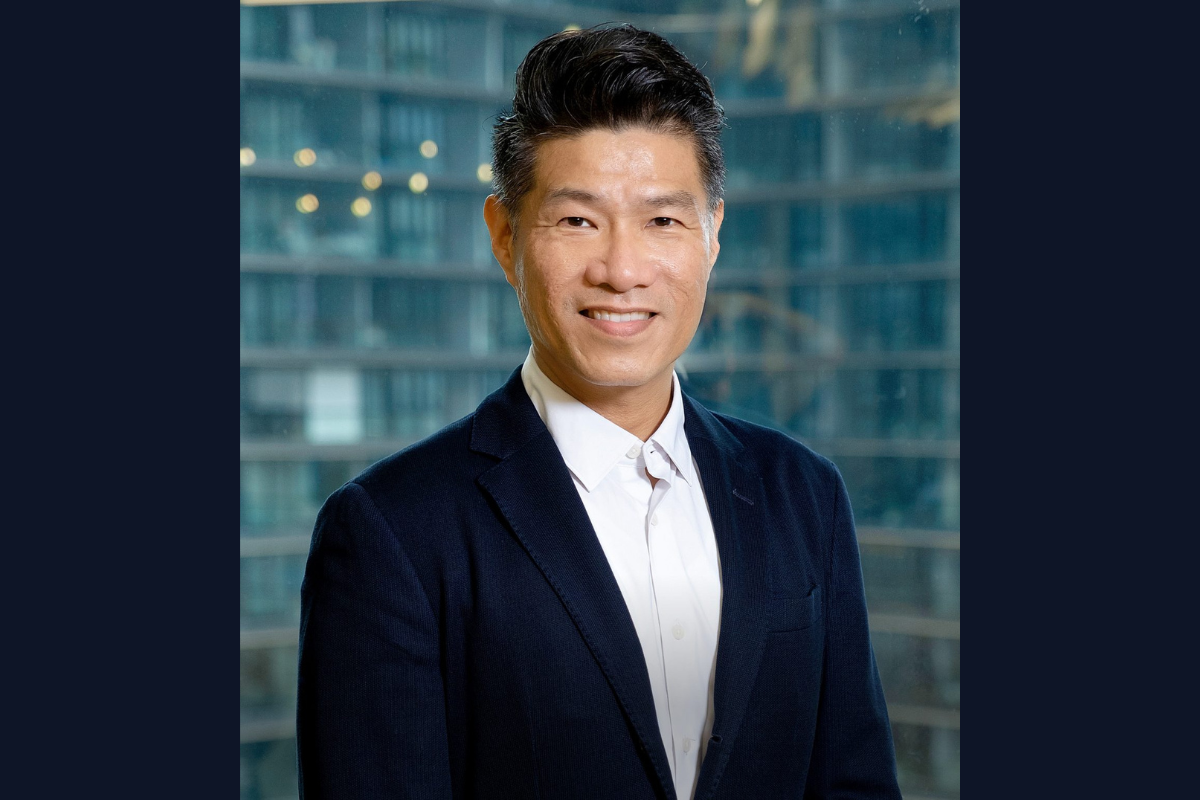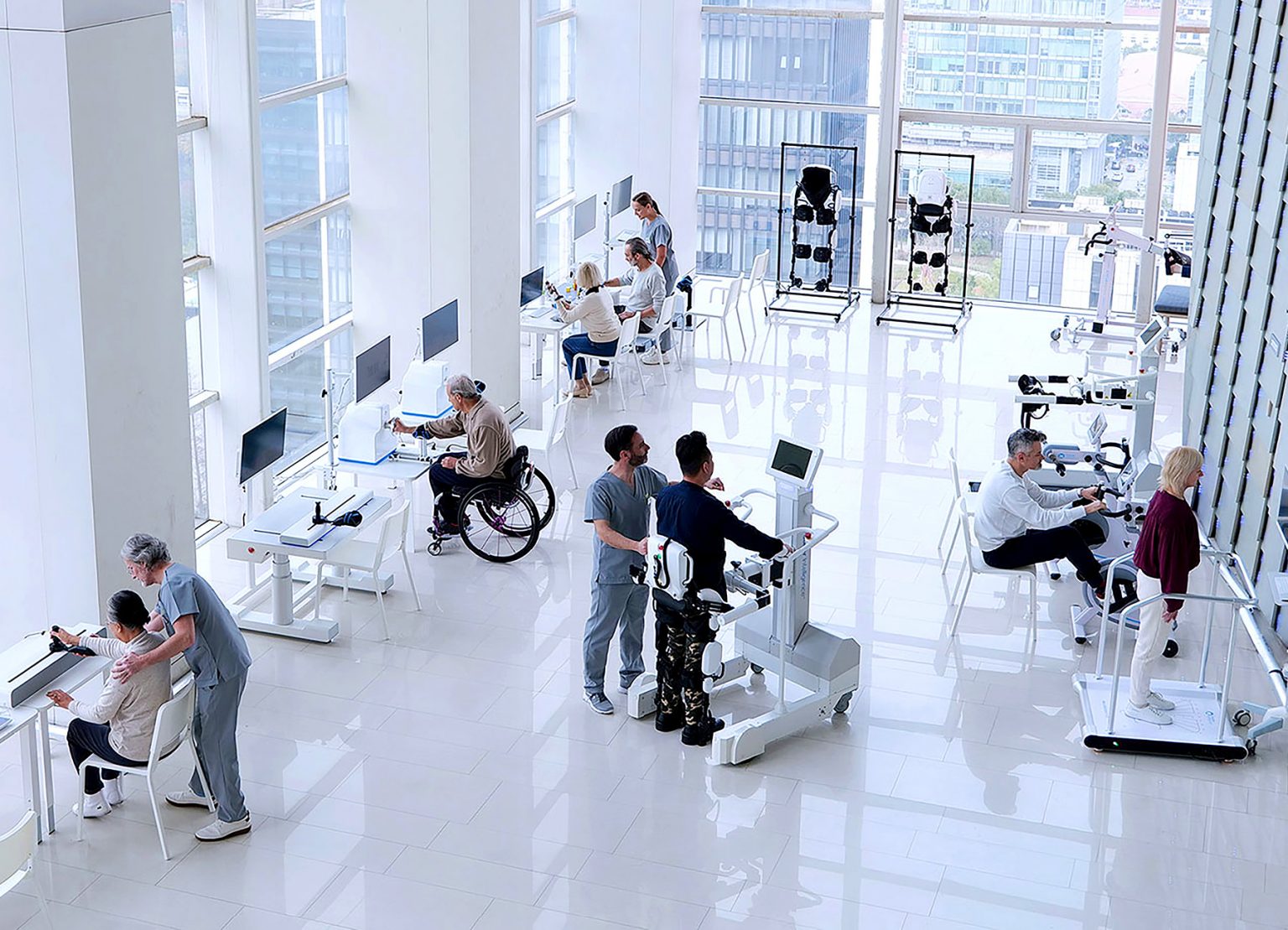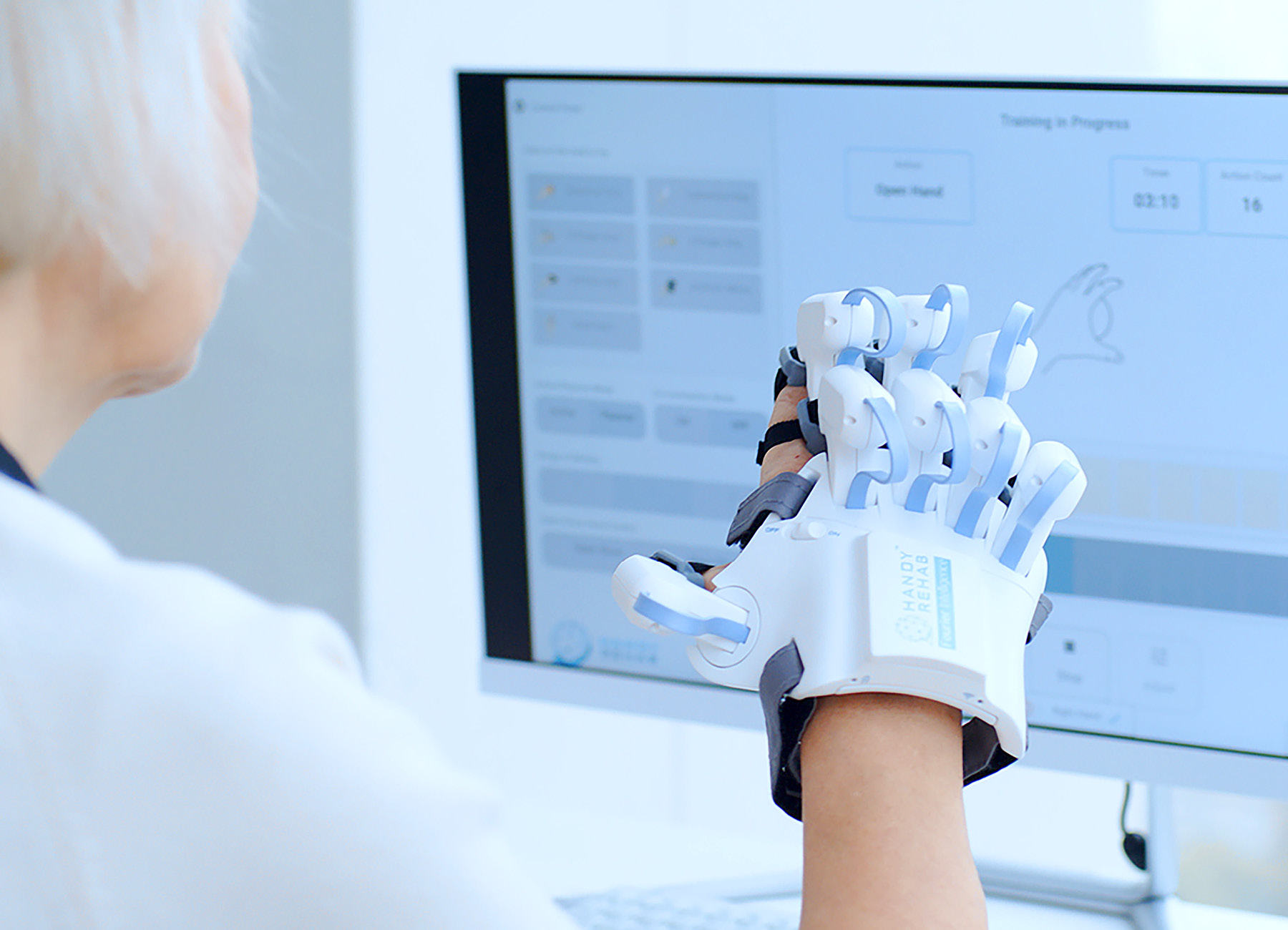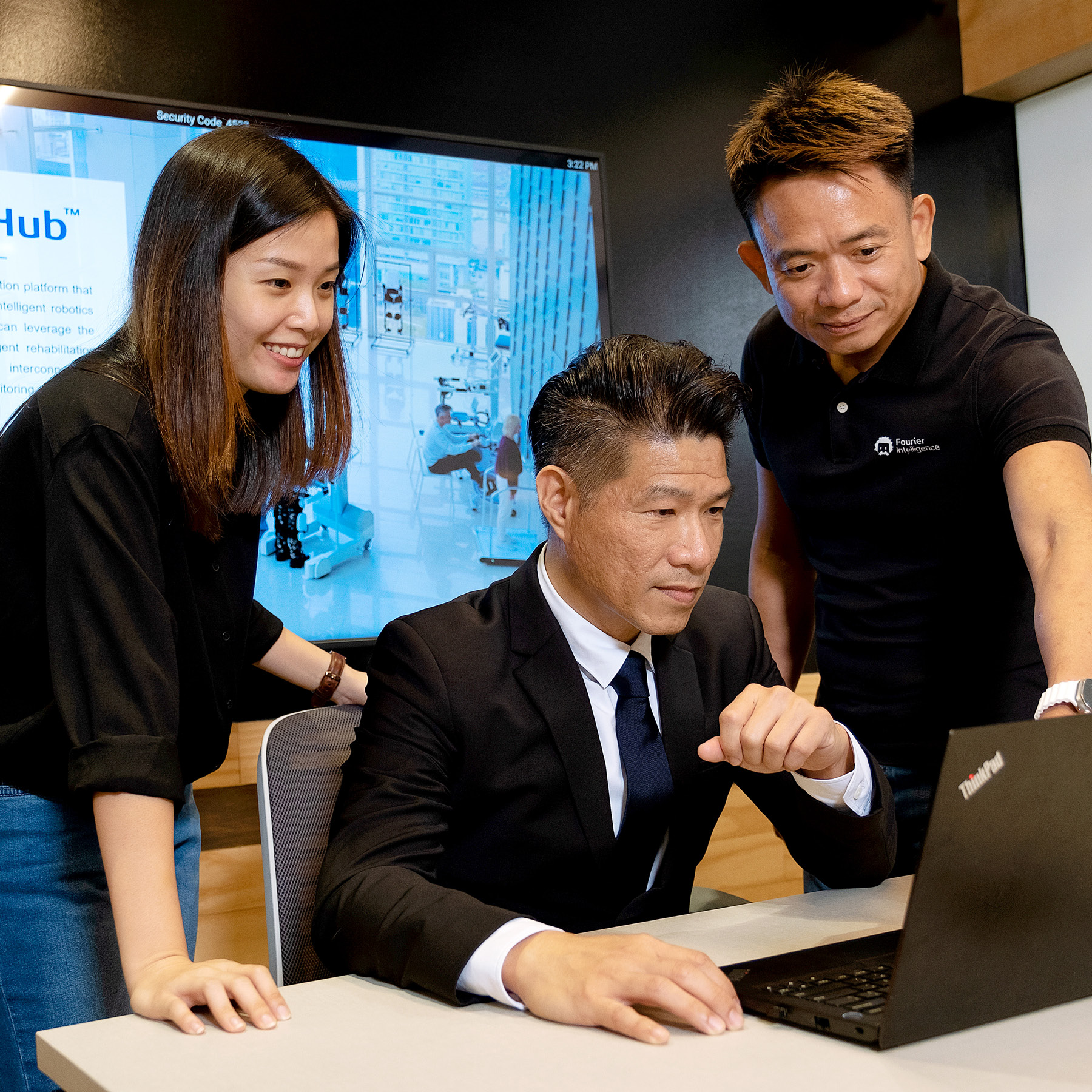CEO of robotic rehabilitation company Fourier Intelligence, Zen Koh originally wanted to be a university professor.

Following the completion of his studies at Glasgow and research work at Nanyang Technological University, he embarked on a career as a research fellow at the National University of Singapore. With a primary focus on developing cutting-edge technology that integrated robotics and sensor systems, his research aimed to enhance rehabilitation outcomes for individuals with disabilities and the elderly.

“Singapore is a rapidly aging country. We were motivated to do something that would help elderly people who were staying alone at home,” Koh explains.
With that in mind, his team developed wearable technology that used micro-electromechanical sensors to detect unusual movements such as a fall and alert the respective caregivers.
“It was well received,” he recalls. “We tested it, and we ended up staying in some of the care homes.”

We created a system called the RehabHub, which was one of the first open platform systems in the industry.
A new venture
Initially joining rehabilitation technology company Hocoma as the Managing Director of its Asia-Pacific operations, Koh’s success there motivated him to apply his valuable experience with robotic rehabilitation technology to establish his own company, Fourier Intelligence, in 2018.
“In Fourier, our goal is not just to make good or affordable technology,” Koh says. “We wish to create Rehab Technology 4.0, an industry that will eventually consolidate and standardize the process to make technology affordable and accessible.”
As Fourier began to expand, Koh realized that the rehabilitation industry was highly fragmented.
“Clinics buy rehab technology from several companies. This creates a situation where they are not able to interchange data as they are not interconnected,” he says.
This problem led Fourier to form an open platform to integrate the entire system.
“We created a system called the RehabHub, which was one of the first open platform systems in the industry,” Koh explains.
The RehabHub is a holistic rehabilitation solution for various forms of treatment and offers standardization as well as interconnectivity of users and equipment. It has made a huge impact on the industry.
“We have a full solution that clinicians find easy to use and that attracts support investment from investors like Saudi Aramco and Prosperity7 fund,” he says.
Making a global impact
From being a standalone branch, Fourier has spread its reach to cities including Kuala Lumpur, Shanghai and Zurich.
“We’re growing, we’re acquiring, we are building more tech, we are using our core technology, our actuators, our models and our robotics,” Koh reveals.
Fourier has also set up 17 research joint labs across the globe. Notable among these are the Chicago-based Shirley Ryan AbilityLab and The University of Melbourne. Zen notes that Fourier has installations in more than 57 countries, and distributors in all of those countries. But getting the technology to the right people and places is only part of the work.

The best technologies are useless unless people know about them and how to use them.
“The best technologies are useless unless people know about them and how to use them,” Koh acknowledges.
Fourier has partnered with MotusAcademy, an association that aims to provide information and knowledge of everything related to advanced technology and robotics in healthcare for this purpose.
Deciding Fourier’s future
Koh seamlessly dons two caps as Global CEO of Fourier and the incoming president of the International Industry Society in Advanced Rehabilitation Technology. But he is clear about one factor that would determine the future of his company and the industry: people.
“The only way to succeed is not just having the best technology, but to have the best people who believe in your mission, your vision, your dream, and to align the culture to get this done,” he says.
It’s clear that Koh is still excited about the technology his firm produces, but he understands that advanced techniques are only part of the process. More important is the know-how reaching the right people and being affordable and accessible.

The only way to succeed is not just having the best technology, but to have the best people who believe in your mission, your vision, your dream.
“Our slogan is ‘empowering you,’” he says. “We want technology to reach everyone, not just the privileged and the rich hospitals. And we will walk the walk, because we believe that our technology can make a difference.”



